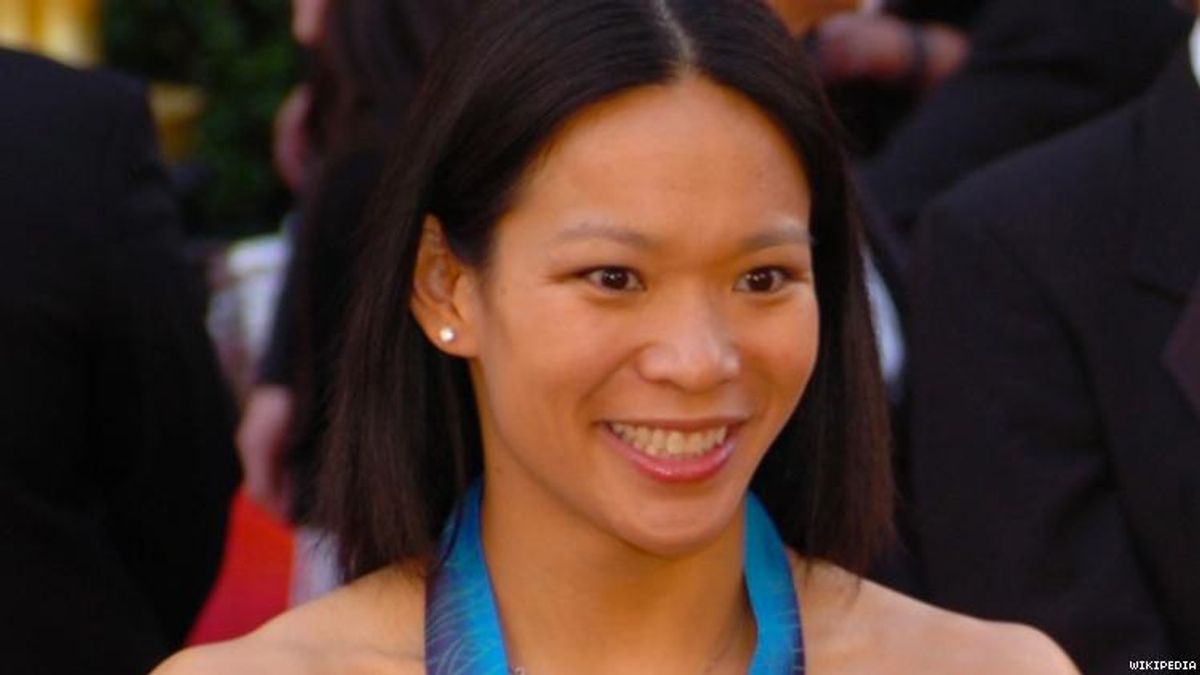Sports were never my thing. In high school , I would always be the last person to be picked for a team. No one wanted me. I was too fat. Too slow. I was too uncomfortable in my body. The jocks called me queer for being effeminate.
But today, I'm captivated by the Winter Olympic games in PyeongChang. They show us how we can be all of who we are -- that we can live our lives authentically and achieve our fullest potential in whatever we do. They also remind me that the world is still a dangerous place to be LGBTQ.
There are moving stories of LGBTQ Asian and Pacific Islander athletes. Julie Wu Chu is a Chinese lesbian on Team USA competing for the ice hockey gold medal. Many came before Chu, though. Esera Tavai Tuaolo is a gay Pacific Islander who played defensive tackle for the NFL's Green Bay Packers. Amazin LeThi was a Vietnamese professional bodybuilder who now promotes HIV awareness and equality for LGBTQ youth. Schuyler Bailar is a trans man on Harvard's men's swimming and diving team who won the national championship for the Capital Swim Club.
I'm proud of these role models. They break the stereotype of Asians as "mathletes," only able to compete on Team STEM (Science, Technology, Engineering, and Math). These LGBTQ Asian and Pacific Islander athletes show us that we can excel in both mind and body.
During the Olympic opening ceremony, I reveled in watching the parade of nations. I learned about new countries and picked up a few fun facts. But who parades for LGBTQ rights in Asia and the Pacific?
We only hear about the extreme newsmaking events, like Taiwan's decision to allow same-sex marriage or the public shaving of trans women's heads by police in Indonesia. There is so much more.
Many countries in Asia and the Pacific lack LGBTQ antidiscrimination laws, don't recognize same-sex marriage, and do not allow their residents to change their legal gender. Some of the most hostile nations are Malaysia, Myanmar, Papua New Guinea, Tuvalu, and Kiribati.
But other countries espouse protections for LGBTQ people. Whereas Fiji and Samoa's laws are more tolerant, Bangladesh, Nepal, and Pakistan recognize a third gender. The National Queer Asian Pacific Islander Alliance produced fact sheets and infomaps on the state of LGBTQ rights in Asia and the Pacific.
I'm delighted that South Korea is playing host to many LGBTQ international visitors during the games. But let's not forget about the queer and trans Koreans who live their lives everyday there.
South Korea's laws grant LGBTQ people rights without remedies. The country's nondiscrimination laws are purportedly inclusive of LGBTQ people, but victims of anti-LGBTQ discrimination have no mechanisms for relief or redress. The South Korean president has publicly opposed same-sex marriage. South Korea should finally enact the laws to protect LGBTQ people from discrimination; these measures have been languishing in the legislature.
The 2018 Winter Olympics in PyeongChang puts our community, our rights, and the local LGBTQ community in South Korea on the world stage. Let's take this moment to celebrate Asian Pacific Islander athletes who are LGBTQ. Let's also take action to urge South Korea to enact meaningful protections to guard against anti-LGBTQ bias. And let's educate ourselves and the public about the state of LGBTQ rights in Asia and the Pacific.
High school kids like I once was, who might be fat, fem, or Asian, deserve so much more in our changing world.
GLENN D. MAGPANTAY is the executive director of the National Queer Asian Pacific Islander Alliance. NQAPIA is a nationwide federation of LGBT Asian-American, South Asian, Southeast Asian, and Pacific Islander organizations. We seek to build the organizational capacity of local LGBT API groups, develop leadership, and expand collaborations to better challenge LGBT-bias and racism. Follow at #nqapia.

















































































